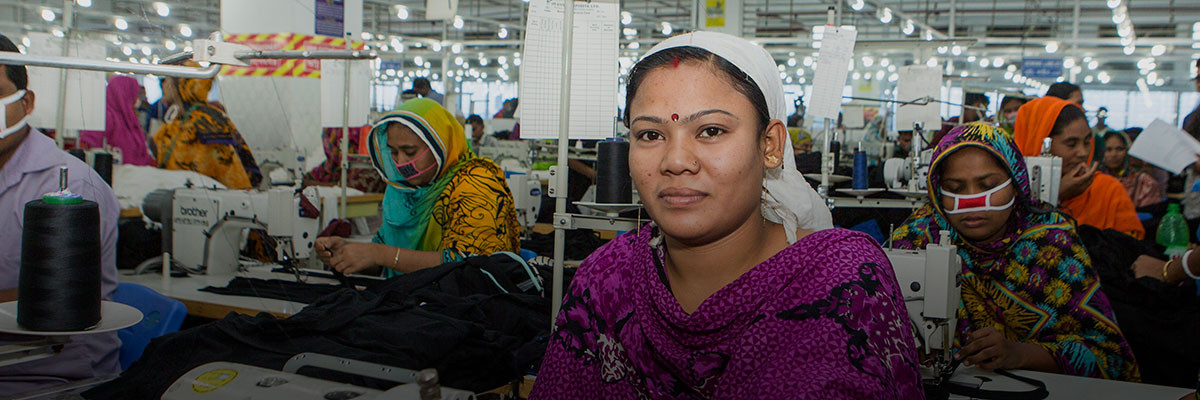
Authors
-
Aditi Mohapatra
Former Managing Director, BSR
-
Lauren Shields
Former Director, BSR
On June 21, 2019, the International Labour Organization (ILO) voted overwhelmingly to adopt a Convention on the Elimination of Violence and Harassment in the World of Work. This represents an important step forward on strengthening protections for all workers around the world against violence and harassment.
Business should see the adoption of the Convention as a signal that:
- It’s time to recognize the stark reality that far too many people—primarily women—continue to experience violence and harassment in the world of work.
- Stakeholder expectations have changed radically for how companies should not only respond to workplace violence and harassment, but also actively work to prevent it from happening in the first place.
For the first time, there is an internationally agreed-upon standard and guidance for addressing violence and harassment in the world of work, setting a high bar for companies and governments on their responsibilities to manage this critical issue. The treaty includes many categories of workers: corporate employees, workers in factories and farms across global supply chains, informal workers, and job seekers. The Convention also looks beyond the walls of the workplace, recognizing there are risks of abuse throughout the “world of work,” e.g., when commuting to and from work.
While the specific applications to businesses will depend on the country and type of business in question, the overall message is clear: More—much more—is expected from businesses when it comes to tackling violence and harassment. Here’s how companies can take action using BSR’s “Act, Enable, Influence” framework:
ACT
Companies can act on this issue by developing programs, policies, services, and products that contribute to ending sexual harassment. A first step for companies is to assess their current efforts on gender-based violence and harassment across their value chains. BSR has developed a tool, in line with the new ILO Convention, to help companies to understand their current gaps in the following three areas:
- Policies: The Convention identifies workplace policies addressing harassment and violence as part of an employer’s responsibilities. The Recommendations accompanying the Convention include additional guidance on what should be included, such as measures to protect whistleblowers and information on complaints procedures.
- Risk identification and assessment: The Convention requires employers to identify hazards and risks of violence and harassment. One way for businesses to approach this is to ensure that their human rights due diligence fully integrates gender considerations, as outlined in the new report from the Office of the United Nations High Commissioner for Human Rights (OHCHR), Gender Dimensions of the Guiding Principles on Business and Human Rights.
- Trainings: The Convention asks employers to provide information and training for workers on violence and harassment and to take specific measures for sectors and roles where “exposure to harassment is more likely.”
BSR’s tool helps companies to conduct a thorough analysis of these and other areas and to assess opportunities to improve their practices.
Companies can enable business partners to tackle harassment and violence by collaborating with them to introduce appropriate measures.
ENABLE
Companies can enable business partners to tackle harassment and violence by collaborating with them to introduce appropriate measures. This is especially critical in supply chains for garments, agriculture, and other light manufacturing, which employ large numbers of vulnerable workers. Increasingly, evidence shows that violence and harassment is widespread in these sectors and across sourcing countries, with women workers particularly vulnerable.
- Many companies are already taking steps to address violence and harassment in supply chains with BSR’s HERrespect program, a leading initiative that connects global brands with their suppliers to implement workplace-based programs. HERrespect takes a comprehensive approach, working with female and male workers and managers to cultivate more cooperative and gender equitable relationships. HERrespect programs also strengthen the ability of workplaces to respond effectively when abuse occurs. Following pilots in Bangladesh, Ethiopia, India, and Kenya, this tried-and-tested program has confirmed its potential for impact and is ready to scale up. To learn more, please register for a HERrespect webinar on July 17 here (Asia/EMEA) or here (EMEA/U.S.).
- Companies are also collaborating with peers through networks such as Business Action for Women and HERproject to tackle the complex issues of gender-based violence throughout their operations and to partner on designing and implementing new solutions.
- Business Fights Poverty has created a challenge on: “What role can business play in tackling gender-based violence?” Through this, Business Fights Poverty and partners have gathered resources to help build the business case for action and case studies of good practices. More information will be released on this site throughout the year.
With their brand credibility, marketing expertise, reach, and access to key influencers, companies can be uniquely positioned to shift harmful social or gender norms.
INFLUENCE
Businesses can also use their advocacy efforts and communications strategies to influence the wider community to address harassment and gender-based violence.
- With their brand credibility, marketing expertise, reach, and access to key influencers, companies can be uniquely positioned to shift the harmful social or gender norms that often contribute to the acceptance of violence and harassment against women. The recent advertisement from Gillette is a great example of this strategy: Through a commercial, the company opened an important conversation on toxic masculinity.
- Companies can also work with governments and advocate for strong protections for women workers as public officials work to put in place the various laws and policies mandated through the new ILO Convention.
BSR members looking to strengthen their policies on violence, harassment, and women’s empowerment should connect with our team. In addition, we will be hosting a webinar in the fall to explore the new ILO Convention in more depth with our partners from Business Fights Poverty and CARE—registration is open here.
BSR’s latest sustainability insights and events straight to your inbox.
Topics
Let’s talk about how BSR can help you to transform your business and achieve your sustainability goals.







